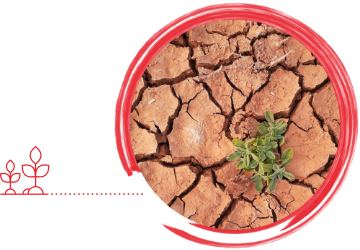Why should we care about food systems?
Global changes in food demand and dietary habits are placing an unsustainable burden on healthcare systems and environmental sustainability, with strong potential for disruption in the future.
Poor diets are associated with an increased risk of many chronic diseases such as cardiovascular disease, stroke, certain cancers and type 2 diabetes, with 1 in 5 deaths globally attributable to an unhealthy diet (Global Burden of Disease Study, The Lancet, Volume 392, Issue 10159, 2018). Diet-related chronic disease accounts for £6.1 billion of annual NHS spend (around 9%) and it generates a wider economic loss of more than £54 billion per year, which is 3% of UK GDP (McKinsey Global Institute. Overcoming Obesity: An initial economic analysis, 2014). In the UK, 58% of women and 68% of men were classified as overweight or obese in 2015 (Statistics on Obesity, Physical Activity and Diet. NHS, 2017). Meanwhile, low vitamin D and iron status is persistent in the UK population and particularly in vulnerable groups (National Diet and Nutrition Survey Summary Report, 2014).
If dietary trends continue with population growth, then in the next 30 years we will need to produce more food than we have ever produced in human history, with detrimental impacts on our natural environment.

There is little extra land for food production, without significant ecological and environmental costs. Agriculture uses 70% of all freshwater withdrawals, produces around a third of all greenhouse gas emissions emissions, and contributes to biodiversity loss and soil degradation. If our food system continues along its current trajectory then it will likely exceed planetary boundaries (Options for keeping the food system within environmental limits. Nature. Volume 562, pages 519–525, 2018).
There is a growing disparity between what we produce in the world, and what we should be eating for health, according to current dietary guidelines. We produce more grains, sugars and fats than we need, but not enough fruits and vegetables. These grains, sugars and fats are combined in manufacturing to produce cheap and unhealthy products that permeate our food environments, resulting in over-consumption.
This programme will tackle these challenges of the current UK food system, enabling long term sustainable transformation for healthier people and a healthier planet.
